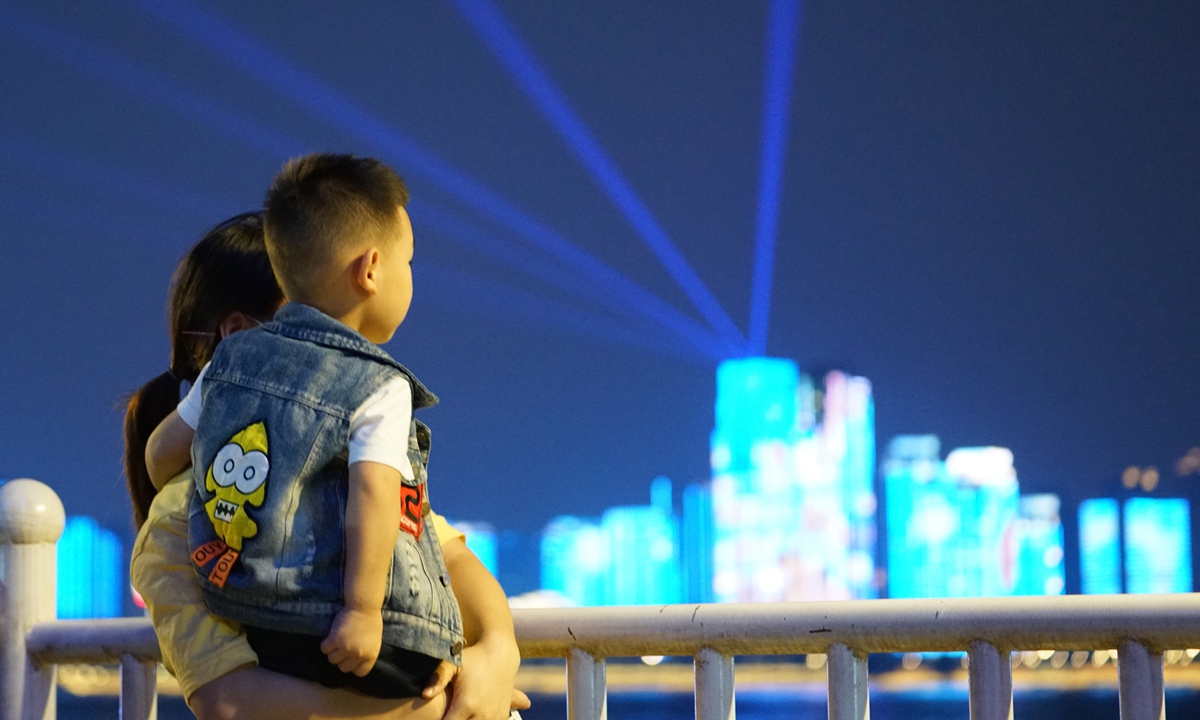Wuhan moves forward with cautiousness, hope
By Cao Siqi Source: Global Times Published: 2020/11/25 18:48:41

A woman and her son watch light show in Wuhan on September 30. Photo: Xinhua
Wearing masks and staying at home more are habits that residents in Wuhan have cultivated during the past year. Carrying memories of pain, discrimination and slander caused by the COVID-19 outbreak, the city has struggled to heal itself and move forward with cautiousness and hope.
It is the first time that I came to Wuhan since the city reported the first case of COVID-19 late last year. Here, mask-wearing and disinfectant can be seen everywhere indoors or outdoors, despite the fact that China has basically contained the virus.
Taxi drivers told me they would disinfect their cars every day, wear masks all the time in service and some of them even have protective suits at trunk.
Food markets in Wuhan are still implementing strict anti-epidemic measures which require visitors to show their health code, travel history and body temperature. Meanwhile, students are told to stay at schools if there is no urgent situation.
At a residential community, I saw a group of elderly people playing mahjong with joy, but all of them wore masks.
A Belgian named Davis who owns a popular bar admitted that he still lost 15 percent of customers till now as local residents prefer to stay at home rather than going outside and gathering together.
Local restaurants are cautious as they continue to providing customers with disposable paper bowls.
"Wuhan people don't eat bats," said local residents rejecting the accusation the virus was caused by people who ate wild animals.
"I could still recall all those days when I was discriminated and defamed but I learned to let it go and move forward," a local resident who had contracted the virus told the Global Times.
Although the city is still facing problems of dampened economy and closed business, all I can feel is that people here had never given up.
We will always stay with our hometown, they say.